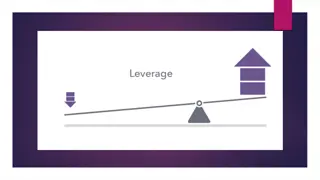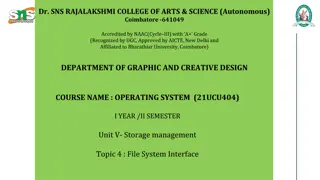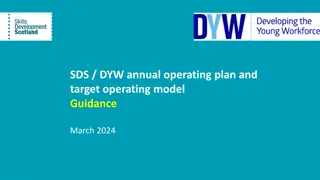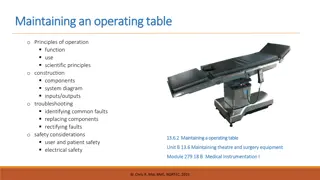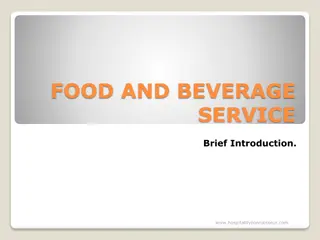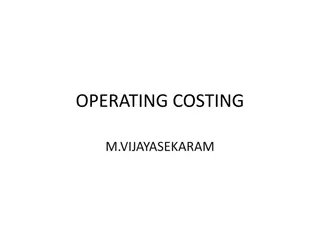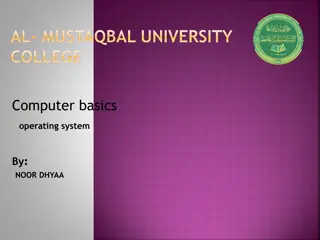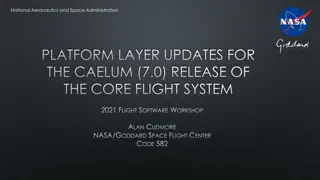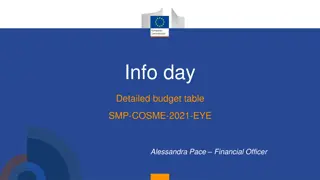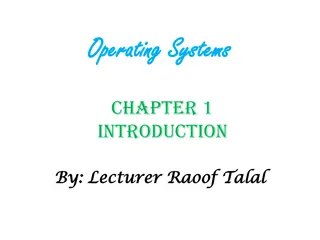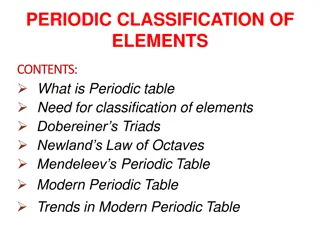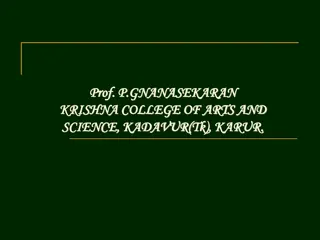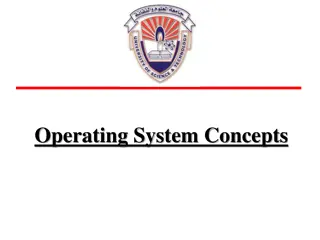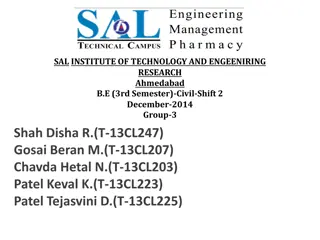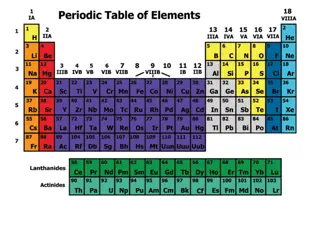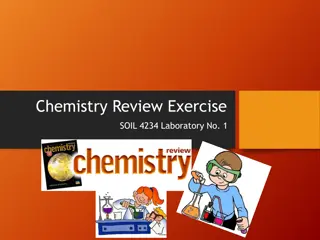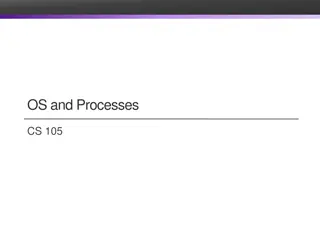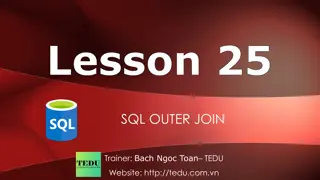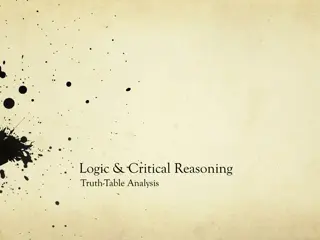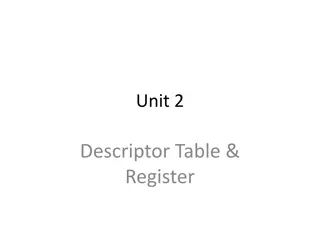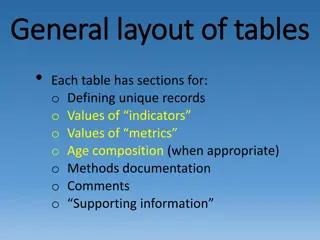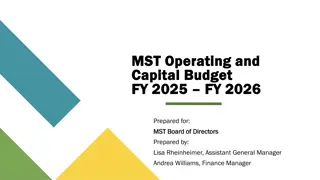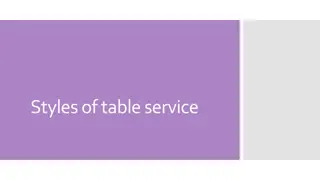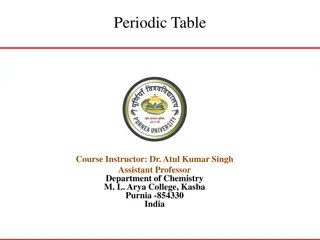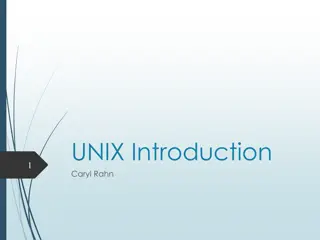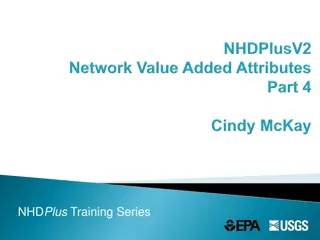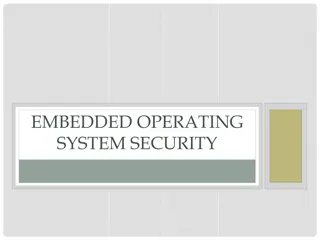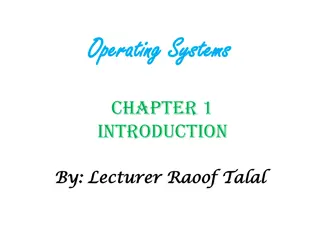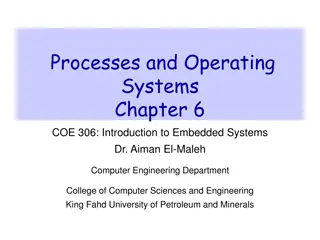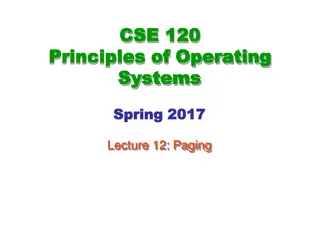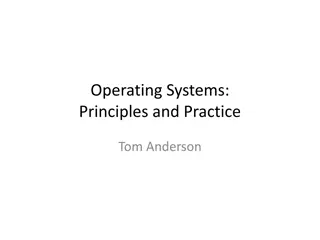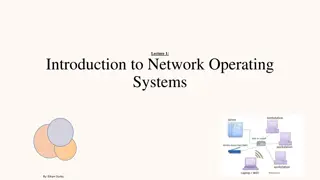Discover AMKO's Restaurant Table Legs
Elevate the ambiance and functionality of your restaurant with AMKO's premium-quality table legs. Crafted with durability and style in mind, our table legs offer stability, versatility, and sleek design to complement any dining space. Explore a range of options including adjustable height legs, stai
0 views • 1 slides
Discover AMKO's Restaurant Table Legs
Elevate the ambiance and functionality of your restaurant with AMKO's premium-quality table legs. Crafted with durability and style in mind, our table legs offer stability, versatility, and sleek design to complement any dining space.\nhttps:\/\/amkogroup.com\/table-bases\n
1 views • 1 slides
Understanding Leverage and Operating Leverage in Financial Management
Leverage in financial management refers to using assets or funds with fixed costs to analyze the impact of debt and equity mix on shareholder returns and risk. Operating leverage focuses on leveraging fixed operating costs to amplify profit changes with sales variations, measured by the degree of op
2 views • 6 slides
Operating Systems
An operating system is a crucial program that manages all other programs on a computer. It handles tasks like input recognition, file management, and device control. There are different types of operating systems such as single-user, single-task systems, multi-user, multi-task systems, real-time ope
6 views • 11 slides
Understanding the Periodic Table and Chemical Bonds in Physical Science
The periodic table organizes elements based on their properties, with rows representing periods and columns representing groups. Mendeleev's early table laid the foundation for predicting undiscovered elements. Today's periodic table orders elements by atomic number, showcasing the periodic law and
3 views • 15 slides
Understanding File System Interface in Operating Systems
The file system interface is a crucial aspect of any operating system, providing users with a method for storage and access to data and programs. It comprises files for data storage and a directory structure for organizing and managing files within the system. File attributes like name, identifier,
0 views • 8 slides
SDS/DYW Annual Operating Plan and Target Operating Model Guidance - March 2024
This guidance outlines the development of an Annual Operating Plan and Target Operating Model (TOM) to enhance collaboration and improve outcomes for young people. It emphasizes aligning planning activities, co-designing learner experiences, and maximizing collective resources through strategic part
1 views • 9 slides
Maintaining an Operating Table: Principles and Functions
An operating table system comprises three components - the table column, table top, and transporter, each available in different versions for various surgical disciplines. Stationary tables are anchored to the floor, offering flexibility to adapt to patient needs. Mobile tables provide maneuverabili
0 views • 12 slides
Food and Beverage Service: Table Setting and Appointment Essentials
Creating an inviting dining experience involves understanding table appointments, setting a table correctly, and enhancing overall service quality. This unit covers table setting details, types of drinks served, communication importance, interpersonal skills, food and drink service techniques, and m
0 views • 26 slides
Understanding Operating Costing in Service Industries
Operating costing is a method utilized by service-oriented businesses to ascertain the costs of providing services. Industries such as transportation services, welfare services, utility suppliers, and municipal services find operating costing beneficial. The method involves classifying costs into th
0 views • 6 slides
Understanding Operating Systems: Basics and Types
An operating system is essential software that manages a computer's hardware and software, allowing users to interact with the computer. Learn about the functions of an operating system, its importance, types available such as Microsoft Windows and macOS, and how they impact different devices. Disco
1 views • 11 slides
NASA Platform Layer Updates for the CAELUM (7.0) Release
The National Aeronautics and Space Administration (NASA) discusses platform layer updates for the CAELUM (7.0) release of the Core Flight System in the 2021 Flight Software Workshop. The platform layer consists of the Operating System Abstraction Layer (OSAL) and Platform Support Package (PSP), whic
1 views • 20 slides
Detailed Budget Table for SMP-COSME 2021 EYE Project
Alessandra Pace, the Financial Officer, has prepared a detailed budget table outlining the project costs, income sources, personnel costs, subcontracting details, purchase costs, and more. The table provides insights into the breakdown of expenses and contributions for the project. Instructions on h
0 views • 39 slides
Understanding Operating Systems: Introduction and Functions
An operating system plays a crucial role in managing computer hardware and facilitating user-computer interactions. It serves as an intermediary between users and hardware components, ensuring efficient resource allocation and control. The operating system coordinates the use of hardware resources b
5 views • 16 slides
Evolution of Periodic Table and Classification of Elements
The Periodic Table is a systematic arrangement of elements based on atomic number and properties. Over time, chemists developed various classification methods such as Dobereiner's Triads, Newland's Law of Octaves, Mendeleev's Periodic Table, and the Modern Periodic Table to organize the increasing n
1 views • 26 slides
Understanding Operating Systems: Functions and Evolution
Operating systems are essential software that enable computers to function effectively by managing hardware resources and facilitating communication between applications and hardware. This article covers the basics of operating systems, their structure, evolution, functions, and types. It also explo
2 views • 23 slides
Understanding Operating System Concepts: Lecture Overview and Services
Exploring the lecture content on operating system concepts, structures, services, system calls, and file manipulation. Delve into the importance of operating system services, error detection, program execution, I/O operations, protection, security, and resource allocation in operating systems. Learn
4 views • 26 slides
Introduction to Plane Table Surveying in Civil Engineering
Plane table surveying is a graphical and cost-effective method used for surveying small-scale areas. This method involves simultaneous plotting of the survey while in the field, ensuring accuracy and efficiency. Key principles, instruments, setting up procedures, advantages, disadvantages, and commo
1 views • 37 slides
Understanding the Periodic Table: Mendeleev's Discovery and the Role of Valence Electrons
Russian chemist Dmitri Mendeleev's groundbreaking work in 1869 led to the creation of the periodic table, showcasing a pattern in the arrangement of elements by increasing atomic mass. Discover how Mendeleev's table evolved, the significance of Henry Moseley's contribution in 1914, and the importanc
0 views • 61 slides
Chemistry Review Exercise: Periodic Table and Atomic Properties Review
This detailed content covers a review exercise on the Periodic Table and Atomic Properties of various elements. It includes information on atomic structures, fundamental physical constants, and common elements found in the Periodic Table. The content explores elements from Hydrogen to Osmium, detail
0 views • 16 slides
Introduction to Operating Systems and Processes
In this informative content, we delve into the fundamental concepts of operating systems (OS) and processes. Operating systems are essential software that manage a computer's resources for users and applications. We explore the core functionalities of an OS, such as resource allocation, isolation, c
0 views • 41 slides
Understanding SQL Outer Join in Database Queries
SQL Outer Join is a powerful feature that combines data from multiple tables even when there are no exact matches. It includes Left Outer Join and Right Outer Join, allowing you to retrieve all records from one table and matching records from another. The LEFT JOIN keyword fetches all records from t
0 views • 4 slides
Understanding Truth-Table Analysis in Logic and Critical Reasoning
A truth-table is a table used in logic to show the distribution of truth values over compound formulas. It helps determine the truth values of formulas based on fixed inputs and truth functions. By following rules for constructing a truth-table and distributing basic truth values in rows, logicians
0 views • 15 slides
Para Table Tennis Tokyo 2020 Qualification Criteria & Program Overview
The Para Table Tennis Tokyo 2020 Qualification Criteria include athlete performance, universality, and team event viability. The Table Tennis in Paralympic Program features various sports events, with Tokyo 2020 hosting a total of 31 medal events for 146 athletes. The International Table Tennis Fede
0 views • 15 slides
Understanding Descriptor Tables and Registers in Computer Systems
Descriptor tables in computer systems group segment descriptors together for efficient memory management. They consist of Global Descriptor Table (GDT), Local Descriptor Table (LDT), and Interrupt Descriptor Table (IDT). The Global Descriptor Table (GDT) is a crucial table that is shared by all prog
0 views • 18 slides
Table Layout Guidelines for Data Presentation
Comprehensive guidelines for structuring tables including defining unique records, values of indicators and metrics, age composition, methods documentation, comments, and supporting information. The content outlines the table layouts for values of indicators, metrics, NOSA table indicators and metri
0 views • 26 slides
MST Operating and Capital Budget FY 2025 Summary
The MST Operating and Capital Budget for FY 2025 focuses on maximizing revenues, increasing bus advertising rates, promoting transit services, seeking grants for capital projects, and maintaining stable staffing levels. The budget priorities also include operating a Better Bus Network at Board-adopt
0 views • 10 slides
Various Styles of Table Service in Luxury Restaurants
Found in luxury restaurants with à la carte menus, different styles of table service include French service, Russian service, American service, and more. Each style offers a unique dining experience, from dishes being presented on a trolley to food preparation at a gueridon table in front of guests
0 views • 16 slides
Evolution of the Periodic Table: From Dobereiner to Mendeleev
The evolution of the periodic table, from Dobereiner's Law of Triads to Newlands' Law of Octave, and finally Mendeleev's Periodic Law and Original Periodic Table, marked significant strides in organizing chemical elements based on their properties and atomic weights. Each contribution led to the ref
0 views • 14 slides
Understanding UNIX Operating System
UNIX is a versatile operating system that enables multi-user access, multitasking, and portability across various computing environments. It serves as the foundation for many modern operating systems and has influenced concepts incorporated in Microsoft Windows and DOS. The UNIX system comprises dis
0 views • 51 slides
e-Prelude.com Maintenance and Inventory Management Guide
Dive into the world of e-Prelude.com through this comprehensive guide that covers items maintenance, software information chart, item definition, item creation process, table maintenance, warehouse table access, accounts receivable and accounts payable functions, VAT rate table, and terms of payment
0 views • 21 slides
Introduction to Linux: Course Overview and Objectives
This introduction to Linux course provides a comprehensive overview of operating systems, including the history, variations, user interface, and essential commands. The course is designed with lectures, labs, and exercises to help participants gain a better understanding of Linux and its practical a
0 views • 77 slides
Understanding NHDPlus Training Series: PlusFlow Table and Tool Navigator
This content delves into understanding the format and content of the NHDPlus Training Series, specifically focusing on the PlusFlow Table and NHDPlusV2 Flow Table Navigator Tool. It explains the purpose of the tool, how it enables network traversal, and the key components of the PlusFlow Table. Addi
0 views • 21 slides
Understanding Embedded Operating System Security
Embedded operating systems are designed for special purposes with limited resources and small sizes, found in various devices like ATMs, smartphones, cars, and more. Common operating systems include VxWorks, Windows, QNX, and SCADA, with different applications and requirements. Windows CE stands out
0 views • 21 slides
Understanding Operating Systems: An Introduction and Overview
An operating system is a crucial program that manages computer hardware and serves as an intermediary between users and hardware. This chapter explores the role of operating systems in a computer system, covering components like hardware, application programs, and users. It delves into how operating
0 views • 16 slides
Introduction to Processes and Operating Systems in Embedded Systems
Processes and operating systems play a crucial role in building complex applications on microprocessors, offering flexibility to meet timing requirements. The operating system (OS) manages processes by providing mechanisms for switching execution between them. Real-Time Operating Systems (RTOS) are
0 views • 65 slides
Understanding Two-Level Page Tables in Operating Systems
The lecture discusses the management of page tables in operating systems, focusing on optimizing space and time. It explores the concept of two-level page tables to reduce overhead in mapping virtual addresses to physical memory. By using a master page table and secondary page table, the system effi
0 views • 36 slides
Understanding Operating Systems: Principles and Practice in CSE Curriculum
Dive into the world of operating systems through the lens of "Operating Systems: Principles and Practice" by Tom Anderson. Discover how this course fits in the UW CSE curriculum, covering systems programming, operating system interfaces, and distributed systems. Explore the project work on building
0 views • 21 slides
An Overview of Network Operating Systems and Multitasking
This informative content discusses the services of network operating systems, multitasking concepts, essential components, client and server software elements, and network services. It explains the two forms of multitasking - preemptive and nonpreemptive - and their functions within operating system
0 views • 48 slides
Overview of Network Operating Systems and Their Features
Network operating systems are essential software that manage computer resources and provide services for programs. This lecture covers the types of computers in a network, features of operating systems such as process and memory management, disk and file systems, and networking capabilities. Underst
0 views • 27 slides


